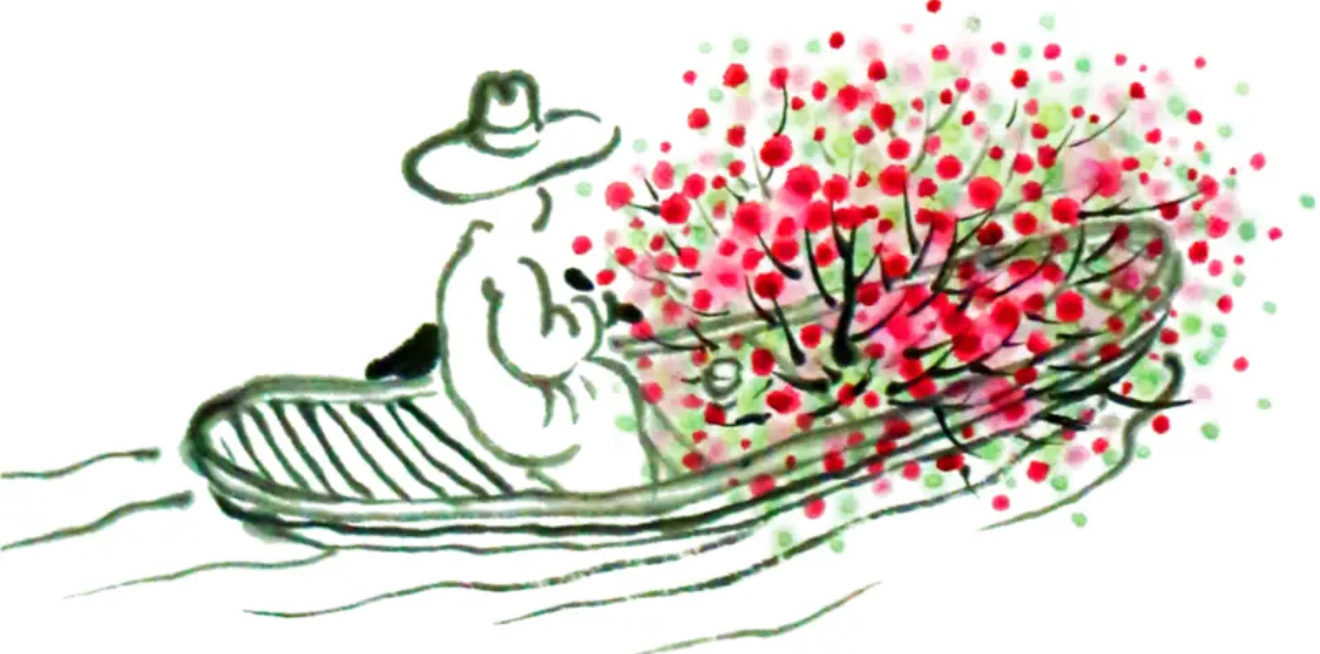The Other China
再訪陶淵明
In this celebration of the northern autumn of 2025, the Beijing artist Lao Shu plucks virtual chrysanthemums at the imagined home of Tao Yuanming, China’s most famous poet-recluse.
As we have previously noted, Lao Shu’s work builds on an ancient cultural lineage of contemplation, sublimation and escape, one that is most readily associated with Tao Yuanming. It anlso offers what Feng Zikai 豐子愷 called ‘a temporary escape from the dusty world’ 暫時脫離塵世. (For more on this topic, see On Heritage, an essay about the rationale behind China Heritage.)
Elsewhere, Lao Shu’s mind-travels have taken him to the Tang and Song, as well as to the Wei-Jin era during which Tao Yuanming was active. See:
- Only ever one step away — Lao Shu’s travels in time and space
- Roaming through Tang-Song landscapes with my Wei-Jin brothers
- An Express Delivery from the Tang Dynasty
See also Tao Yuanming — Feckless Sons, Poet-Readers and Garbage Time, a chapter in The Tower of Reading.
***
Lao Shu 老樹 is the nom de plume of Liu Shuyong (劉樹勇, 1962-), a Beijing-based artist, writer, critic and professor in communications. His artistic voice is unique and personal, its tenor, whimsy and profundity evoke what for decades we have called The Other China — a cultural noosphere that is as undeniably local as it is universal.
***
For more work by Lao Shu in China Heritage, see The Other China and Intersecting with Eternity (a list of titles and links can be found at the end of this chapter). For his latest art work (and merch), see Lao Shu Paintings 老樹畫畫 at NetEase 網易.
— Geremie R. Barmé
Editor, China Heritage
10 October 2025
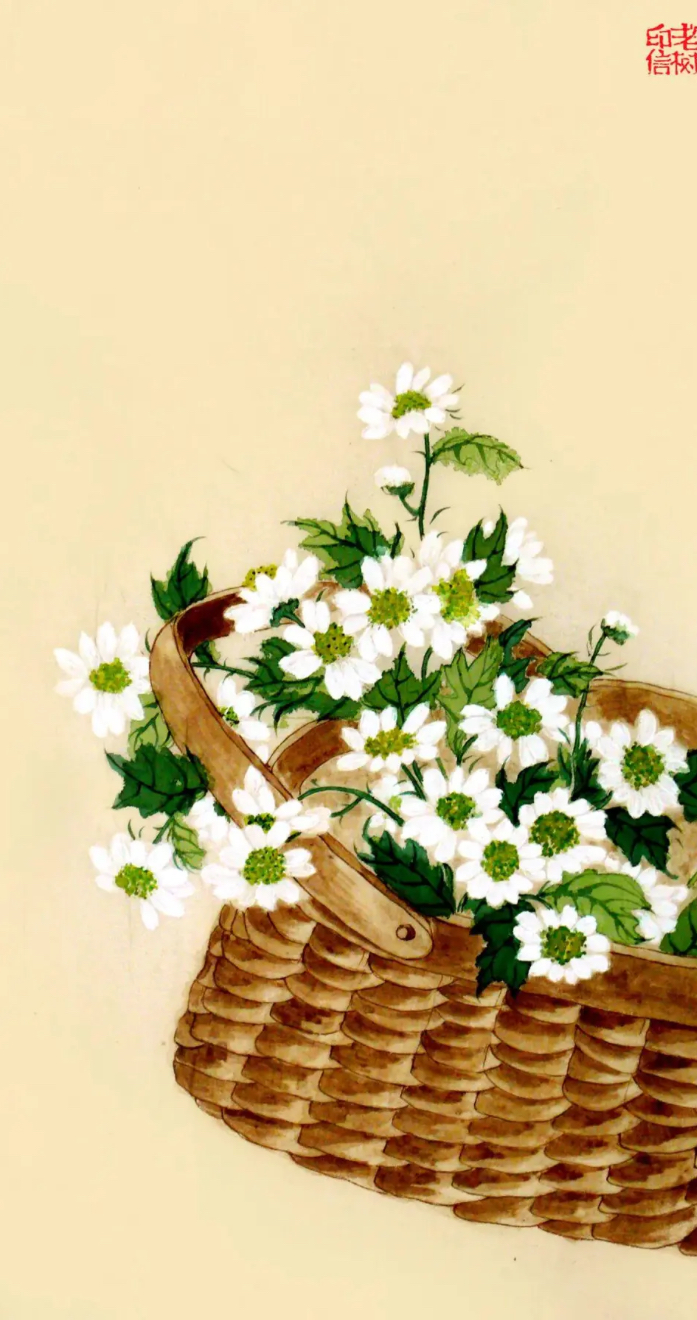
***
昨日再訪陶淵明,
柴門緊閉又未成。
折了幾枝野菊花,
坐聽空山吹大風。
I paid another visit to Tao Yuanming,
but that brush gate of his was closed to me.
Plucking a bunch of wild chrysanthemums,
I just sat there as mountain winds echoed in the distance.
***
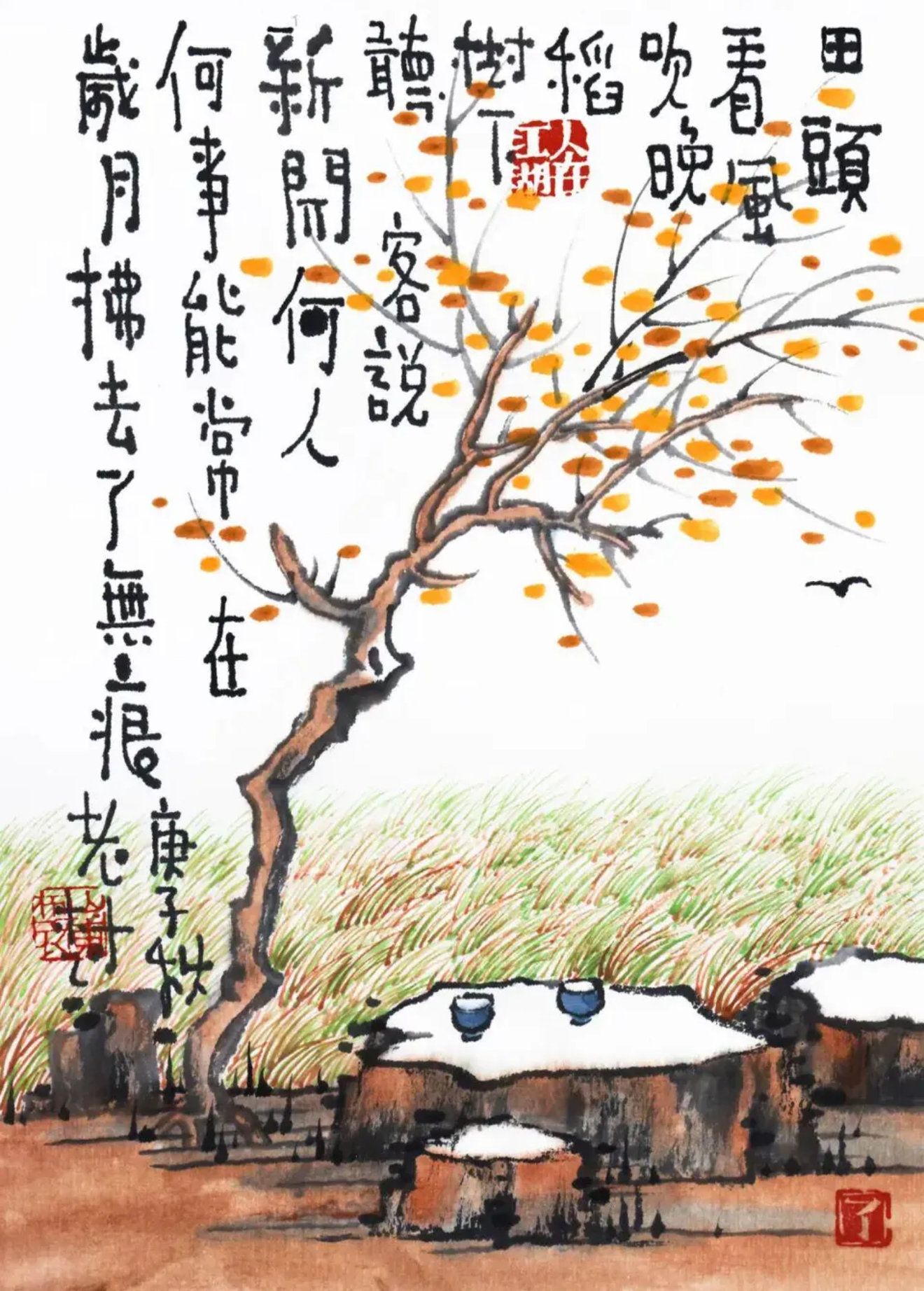
***
As the wind buffets the late-season paddy
I listen to the stories and news from my guest.
Who of us and what of ours can last for long?
Time does its quiet work, leaving no trace behind.
— Lao Shu, autumn, Gengzi Year of the Rat [2020]
***
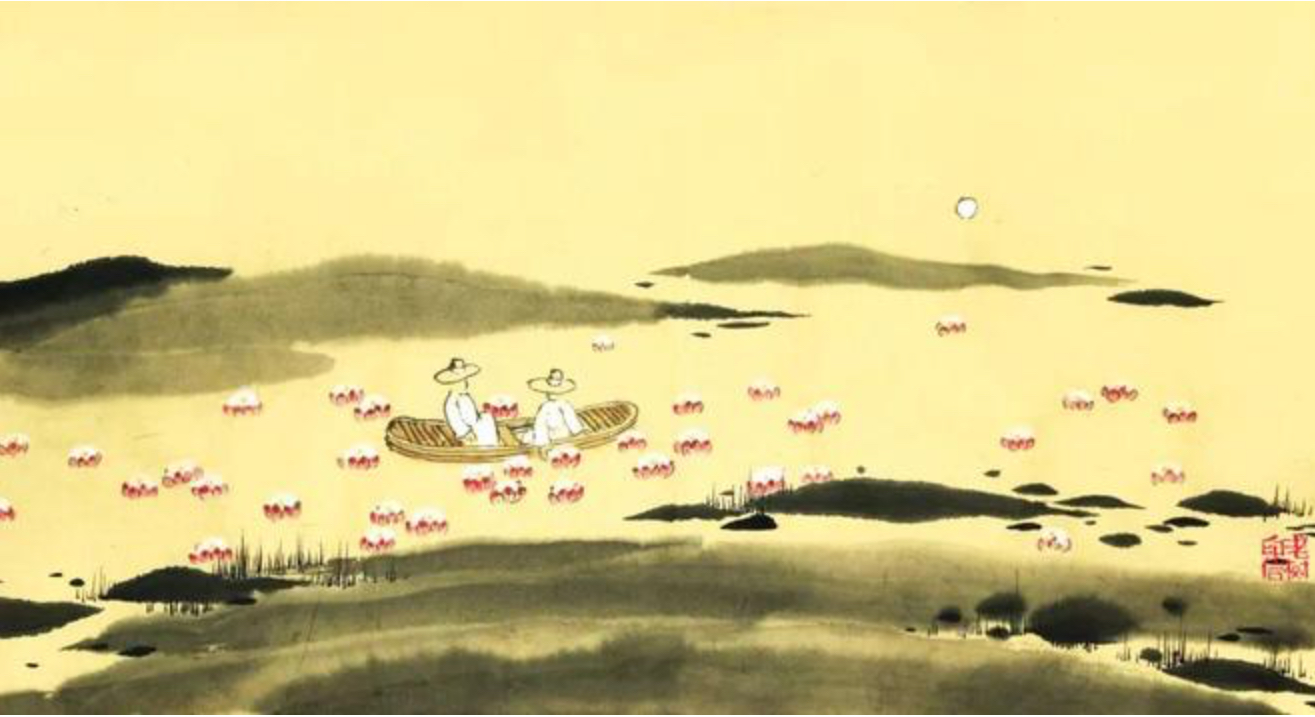
立秋人間新月,
中元夢里故人。
心頭自有敬畏,
不語怪力亂神。
A new moon shines in the early fall
at Mid Autumn I dream of lost ones.
There’s awe aplenty in the secrecy of our hearts,
no need to get caught up in all of that spooky stuff.
***
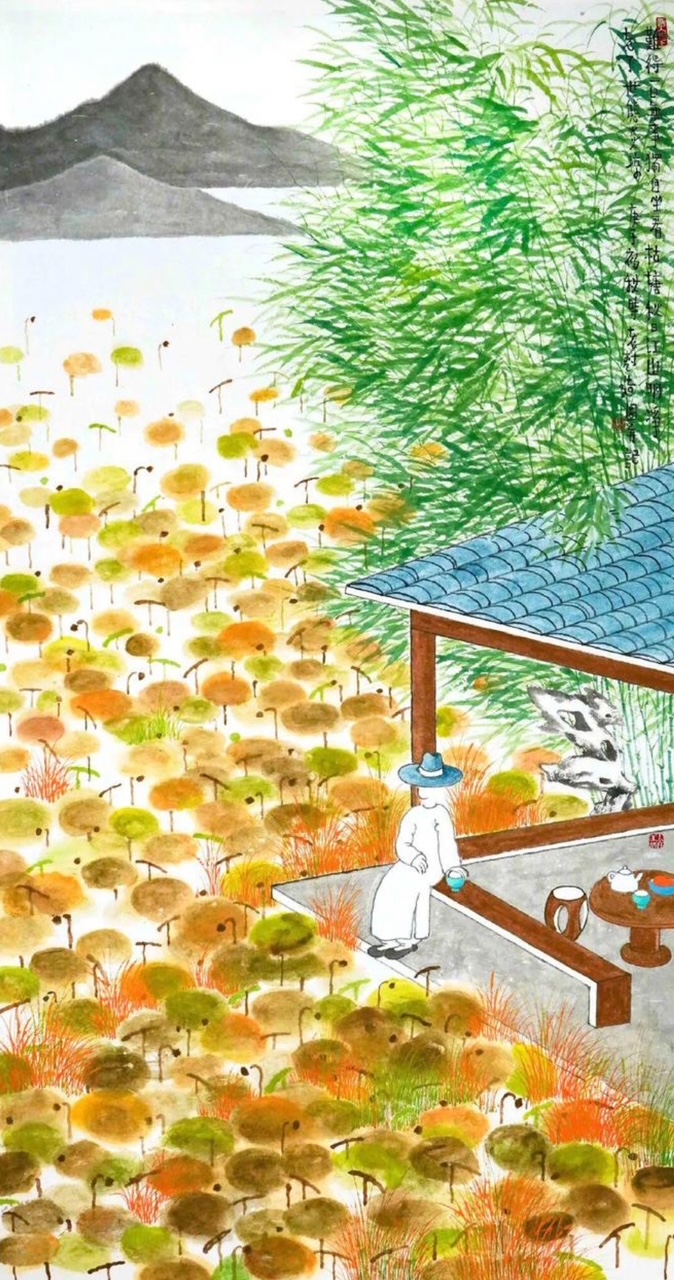
難得一日無事,
獨自坐看枯塘。
秋日江山明淨,
忘了世態炎涼。
It’s rare to have a day to myself, so
I sat alone contemplating the dried-out pond:
Everything glistened in the autumnal light,
to forget, for now at least, the fickle world.
***
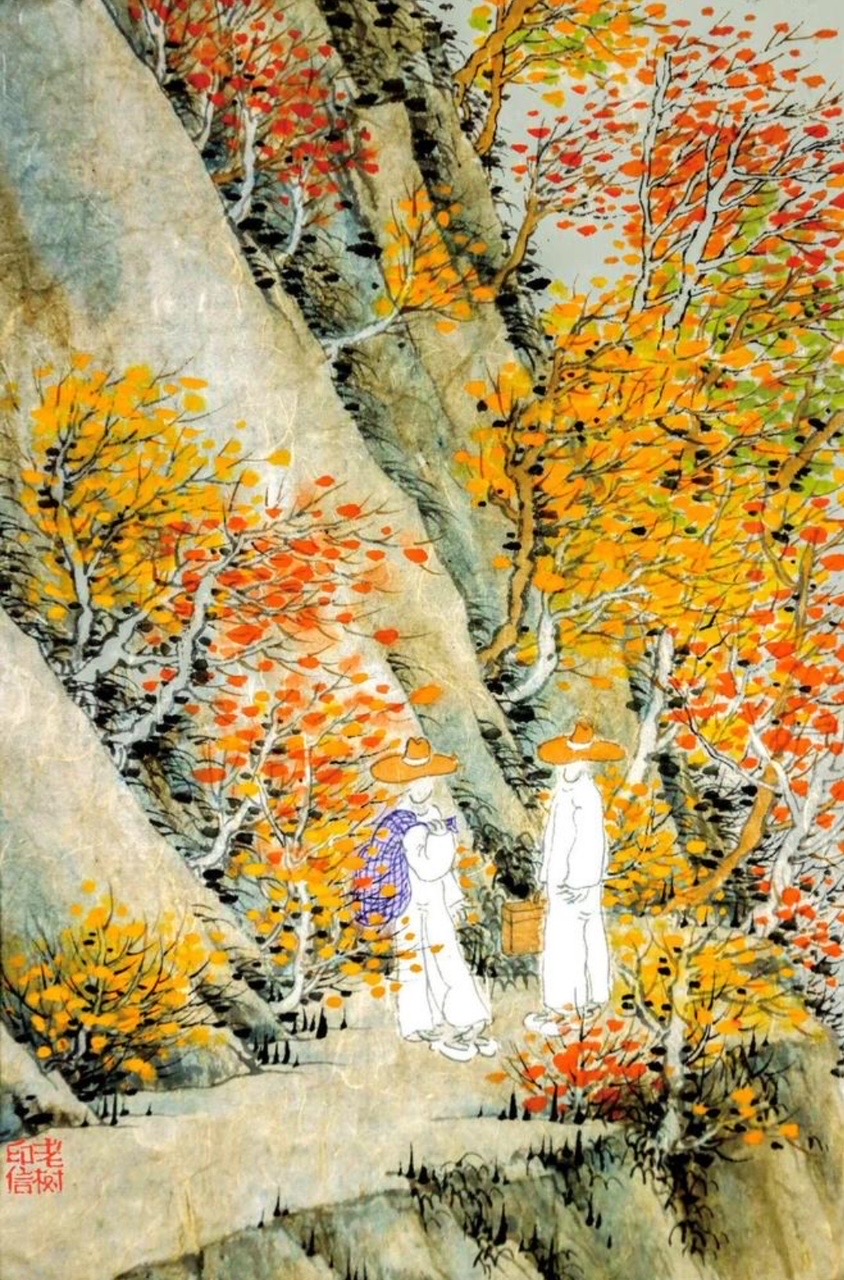
帶些吃的喝的,
週末遁入空山。
看看紅葉黃葉,
最恨天天上班。
Packed some food and drink and
escaped into the quiet hills over the weekend.
The russet and gold of those turning leaves
were such a contrast to the hateful daily grind.
***
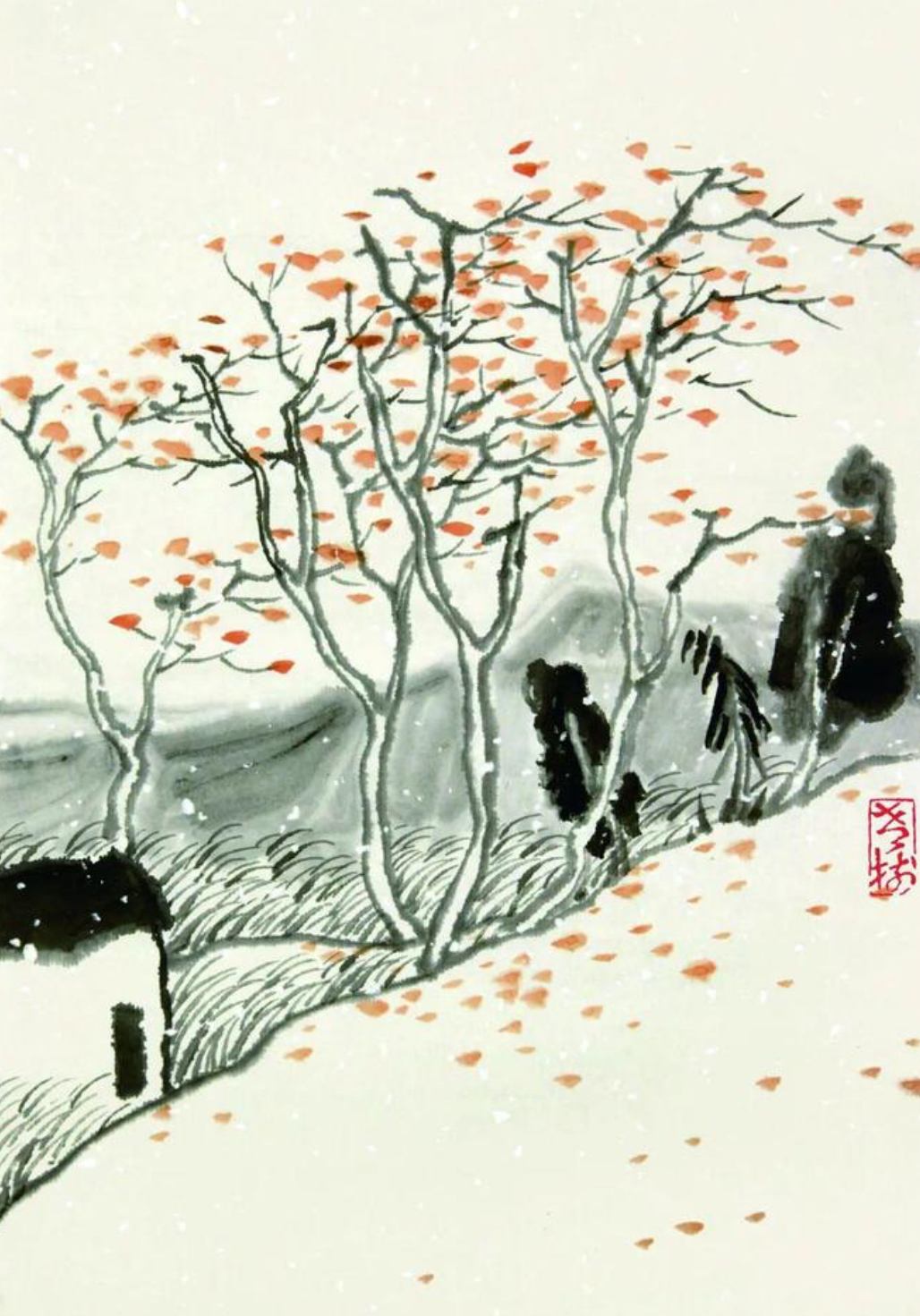
案頭茶續了又涼,
指間書翻過幾行。
忽覺四壁空蕩,
牆上少幅能相伴的畫,
心裡缺塊安頓閒情的地方。
My tea’s grown cold again,
even as my reading has stalled.
Suddenly, I feel desolate in here —
I need the company of suitable paintings,
still my heart lacks a place of true repose.
***
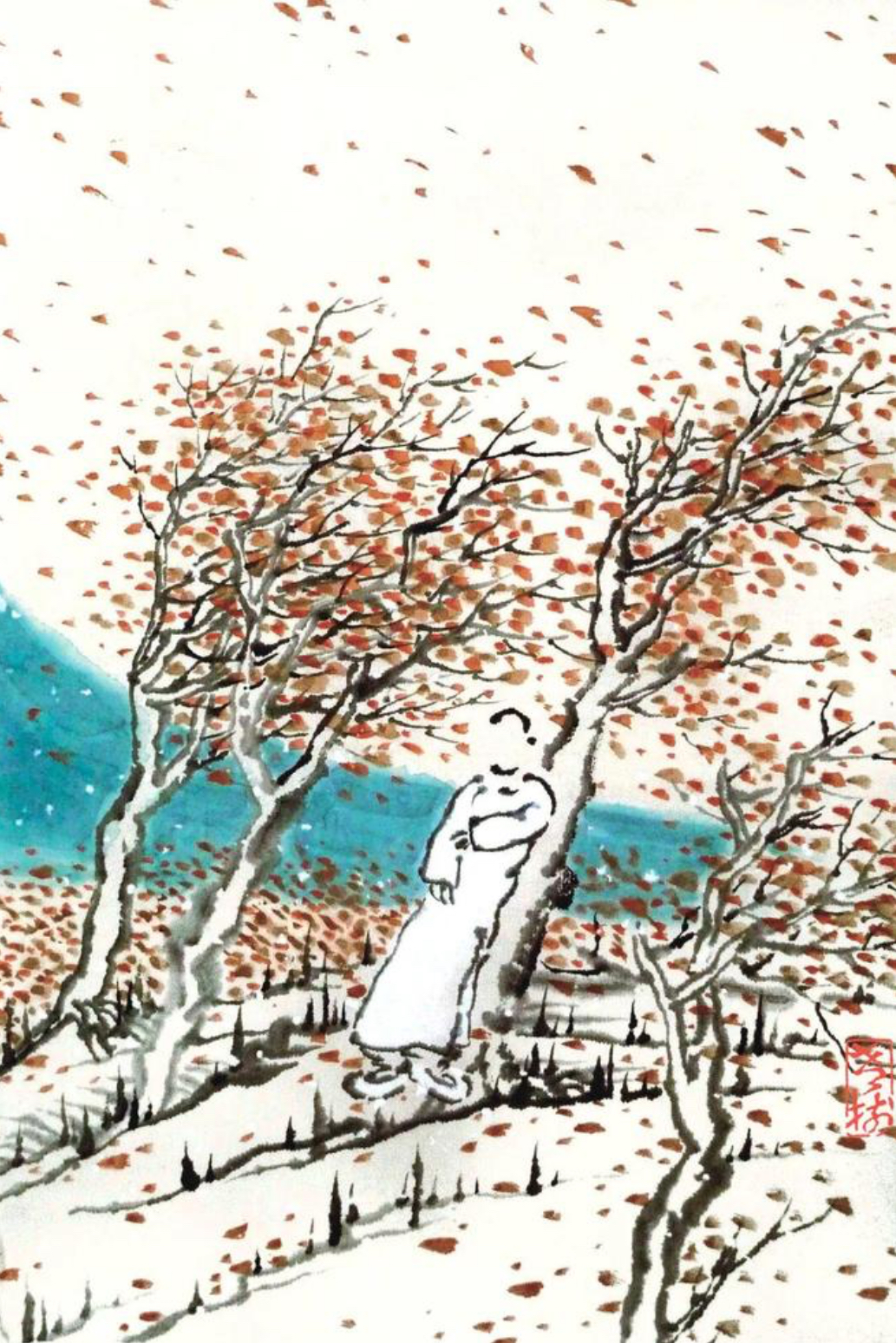
愛看秋風梳衰草,
愛看紅葉漫天飛。
愛看英雄瞎折騰,
愛看史書落滿灰。
I find constant pleasure in:
autumn winds combing over dried grass;
crimson leaves scudding through the air;
the vainglorious deeds of heroes past; and,
history books covered in the dust of time.
***
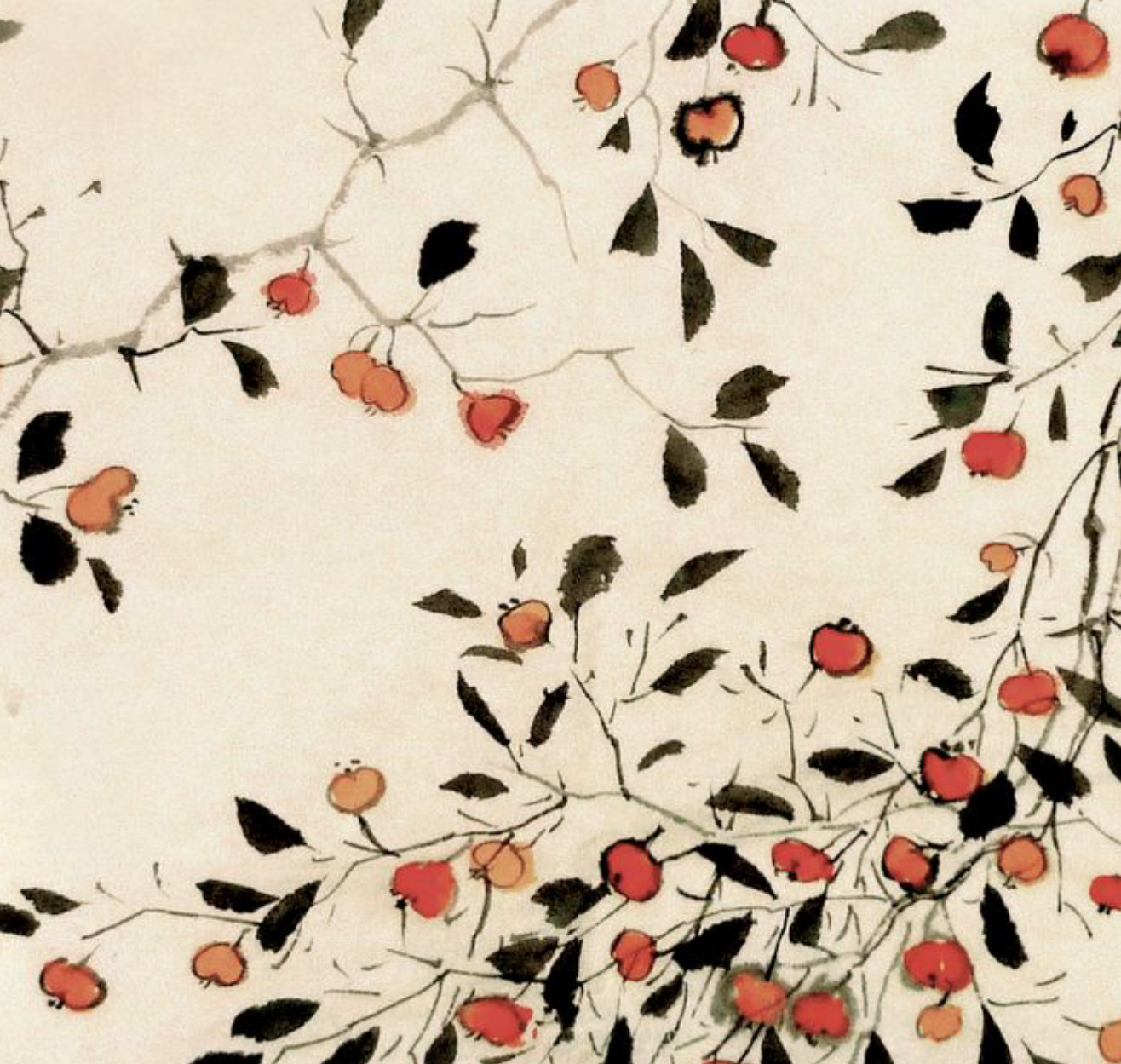
落花已付流水,
黃葉終隨秋風。
無物可以留住,
何必與人紛爭。
Fallen petals on rushing streams,
copper leaves aloft on autumn winds:
nothing remains fixed or held here in place.
Why struggle then with petty grievances?
Source:
- 立秋人間新月,中元夢里故人。心頭自有敬畏,不語怪力亂神。,《網易》,2025年9月6日。來源: 老樹畫畫; and,
- 秋風落黃葉,亭下喝杯茶。世事有人管,你說我忙啥?,《網易》,2025年9月27日。來源: 老樹畫畫
***
Lao Shu in China Heritage
- The Whimsy and Wisdom of Lao Shu, in a summer of discontent
- Lao Shu’s Fall
- Lao Shu’s Farewell to the Year of the Rabbit
- ‘Do you really think you can eat those pies in the sky?’
- Lao Shu’s New Year
- Lao Shu — an artist in all seasons
- Only ever one step away — Lao Shu’s travels in time and space
- Lao Shu — roaming through Tang-Song landscapes with my Wei-Jin brothers
- As the Year Flitters Away — Lao Shu’s Autumnal Hues
- An Express Delivery from the Tang Dynasty
- Keeping Ahead of the Game — Lao Shu Farewells 2024
- Sisyphus in 2025 — Lao Shu’s New Year
- From Lao Shu’s Studio of Drunken Dreams
- The Lantern Festival in the Year of the Snake
- Loitering in this Dusty Realm — paintings and poems by Lao Shu
- ‘I envy clouds their freedom.’
- Lao Shu’s Scattered Petals
- Searching for Solitary Fellowship — paintings and poems by Lao Shu
***
